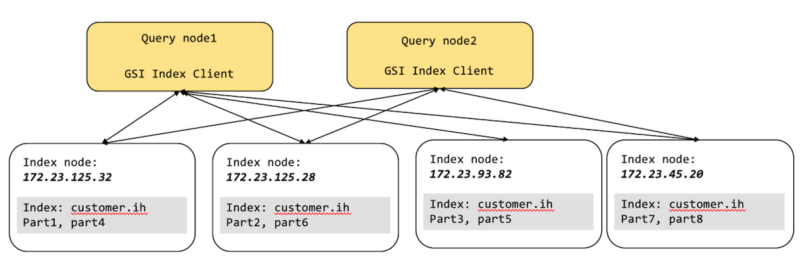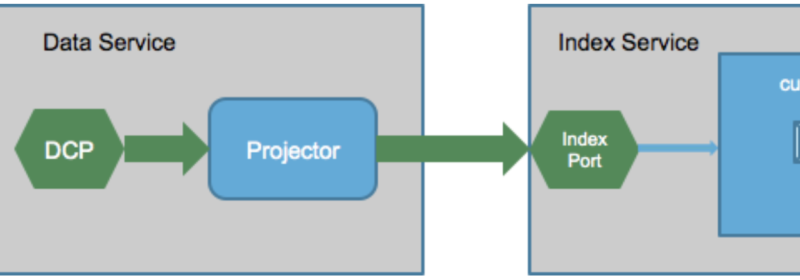Tag: GSI

How to Use Global Secondary Index Partitioning for More Than Partitions
As a field engineer, I work with customers and often see them using Couchbase features with a “thinking-out-of-the-box” approach. One such feature that I see being used more creatively is Global Secondary Index (GSI) partitions. Let’s first discuss GSI and...

FTS Flex Index vs GSI Indexes in Couchbase Server 6.6
In this article, we will touch on some practical examples starting with N1QL queries using GSI Indexes and simulate a dataset that over time grows not just with document size, but the actual document structure growing as well. Couchbase Server makes flexible...

Index Advisor Service for N1QL (June refresh)
This is our June drop for Index Advisor service for N1QL after fixing some of the bugs that were found after our last refresh in May. We plan to keep improvising the Index Advisor service(What is it?). The fixes in...

Using Eviction Effectively to Manage Memory in Couchbase GSI
Eviction In Couchbase server, the Plasma storage subsystem used by Global Secondary Index is initialized with a specific value to be used as its memory quota. The storage subsystem constantly tracks its memory usage and adheres to its memory quota...

Couchbase 6.5 – RMS for Indexing Service
Couchbase 6.5 release includes an extensive list of Enterprise Grade Database Query capability that allows customers to expand the adoption of NoSQL database into traditional database applications. The release has added transactional capability, Analytical Window functions, user defined JS functions,...

New Features in Index Service in Couchbase Server 5.5
In the last major release, Couchbase Server 5.0, we introduced Plasma – New Storage Engine and also the support for Index Replicas in the Index Service. We have continued to build on these new features in our upcoming release. The themes...

Database Indexing Best Practices
Prelude: What is Database Indexing? Asynchronous Indexing: Global Secondary Indexes in databases — Couchbase, for example — can be created, updated and deleted without impacting the reads and writes on the JSON documents in Data nodes. This means that index-specific...

How to transition from Equivalent Indexes to Index Replicas?
In the previous post, we saw the benefits of using index replicas over equivalent indexes. Let’s say you are on Couchbase Server 4.x and have the following 3 equivalent indexes spread across 3 nodes; and with Couchbase 5.0 Beta available,...

Diving into Couchbase Index Replicas
With Couchbase Server 4.x, customers used to create Equivalent Indexes to satisfy the twin requirements of keeping the indexes highly available and to load balance the N1QL queries. What this meant was that the exact same index definition was used...

Using the New Plasma Storage Engine for Couchbase Indexes
After two generations of success using ForestDB, the team responsible for Couchbase indexes has unveiled a new, blazing fast base storage engine: Plasma. In this post, we’ll introduce you to its features and benefits and what you can expect when...

New to Couchbase Server 5.0: GSI replicas and rebalancing
Couchbase Server 4.0 introduced Global Secondary Indexes (GSI) to support the N1QL query engine. Now, with Couchbase Server 5.0 (as of the April developer build), we have added the ability to automatically replicate and rebalance these indexes. At first, GSIs...

Deferring Index Creation
There is a feature in Couchbase 4.x that can really help with Global Secondary Index creation and many do not know about. It is the ability to queue index creation statements and then parallelize their creation for efficiency and performance....